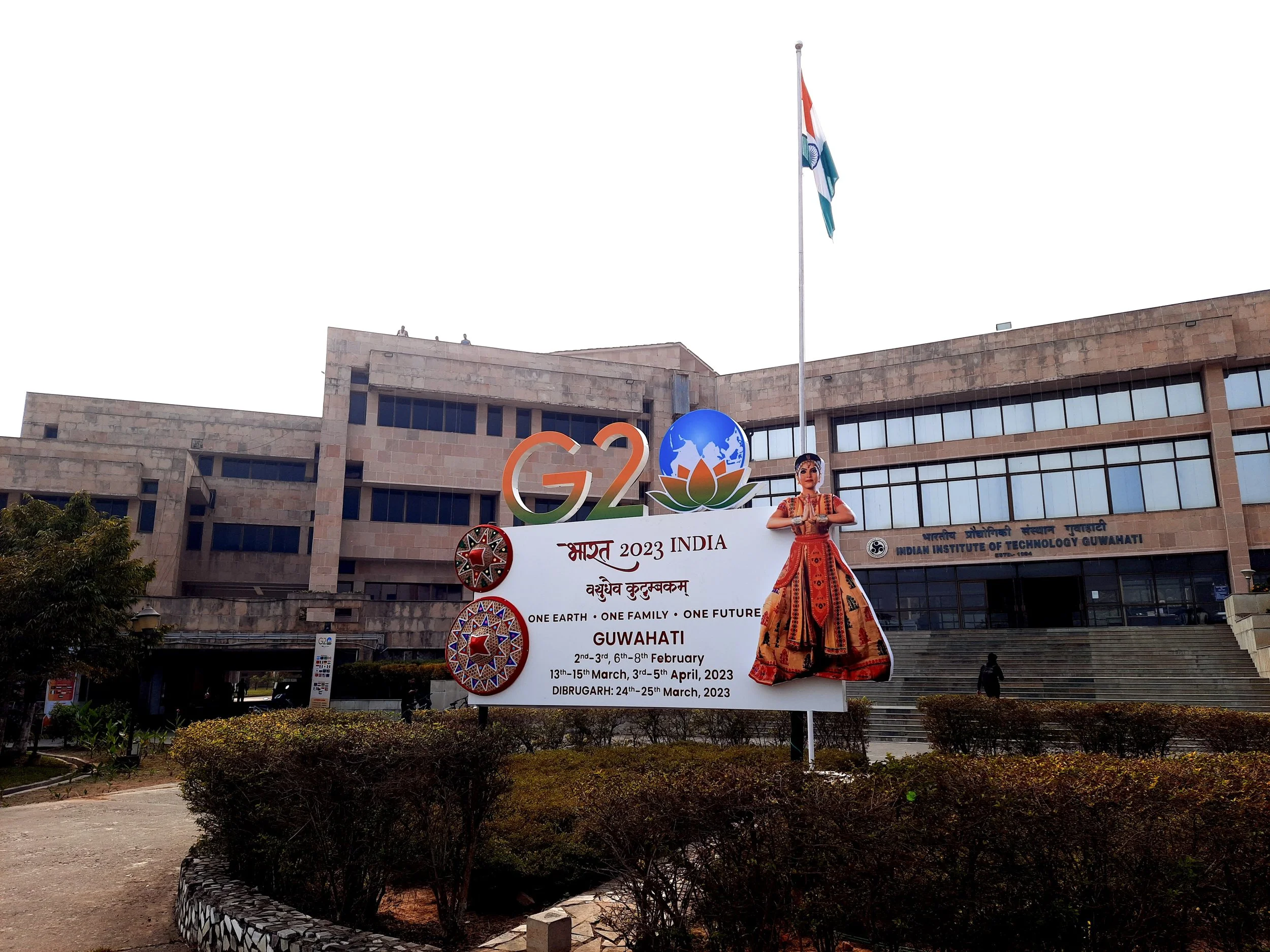Global leaders at 2023 G20 summit unite together to address pressing global challenges, concerns
The 2023 G20 Summit in New Delhi earlier this month addressed pressing global issues, including the war in Ukraine, the climate crisis and more. Photo courtesy of Unsplash
This year’s G20 summit in New Delhi discussed major global and economic issues currently impacting the world, including the addition of the African Union and the war in Ukraine.
The theme of the event, which took place on Sept. 9 and 10, was “One Earth, One Family, One Future,” which was meant to affirm the value of interconnectedness within the Earth’s different countries.
Originally, the G20 summit was formed in 1999 due to the Asian financial crisis. It sought to create a council of global partnerships for international economic cooperation.
Some issues that were discussed at the event include the war in Ukraine, the new membership of the African Union and international cooperation for economic growth and stability.
The G20 is a forum consisting of 19 countries, as well as the European Union. The countries included are Argentina, Australia, Brazil, Canada, China, France, Germany, India, Indonesia, Italy, Japan, Mexico, Russia, Saudi Arabia, South Africa, South Korea, Turkey, the United Kingdom and the United States.
The African Union, which was previously an invited international organization, officially became identified as a permanent member in 2023 of the summit in September. The G20 is thought to be renamed G21 due to the membership of the African Union. However, this has not yet been confirmed.
Andrea Molle, an assistant professor of political science at Chapman University, commented on this recent addition to the forum.
“We are looking at the African Union as a point of reference, as an institution, (that) we want to have a dialogue with,” Molle said. “(It) is tremendously important to reinforce the idea that the African Union can be a partner in development and security in Africa, especially Sub-Saharan Africa, where we see there is a lot going on.”
Within the summit, the G20 New Delhi Leaders’ declaration avoided condemning Russia for the Ukraine war.
The declaration proclaims, “Reaffirming that the G20 is the premier forum for international economic cooperation, and recognizing that while the G20 is not the platform to resolve geopolitical and security issues, we acknowledge that these issues can have significant consequences for the global economy”
Mona Shadia, a lecturer of political science at Chapman, spoke about the summit’s statements pertaining to Russia’s responsibility in the Ukraine war.
“This is a political strategy, and I suspect the reason Russia wasn’t condemned directly is because the members are hoping to de-escalate the conflict,” Shadia told The Panther. “I’m not sure how helpful it will be, but it’s likely better than escalating tension with Russia.”
To address the climate change issue, the summit also launched the Global Biofuel Alliance, which would facilitate the adoption of biofuels to produce cleaner and greener energy to reach decarbonization goals.
Joshua Fisher, an associate professor of environmental science and policy at Chapman, commented on the impact of biofuels to mitigate the climate crisis.
“Biofuels are a solution, but it is not ultimate,” Fisher told The Panther. “You can’t actually create enough biofuels for everything that we need fuel for, so basically, it's not the end-all solution, but it is a step forward.”
He also commented on how local residents in Orange can play an important role in implementing change within their local communities:
“You can do a lot as a community. You can also do a lot politically as a community, more than individuals really can do,” Fisher said. “And so, those are like the key ways that community, the Orange community, can get behind it. We can do stuff by supporting politics. We could do stuff by supporting education. We can do things that lower the carbon footprint of our community as a whole. We can provide support for people interested in conserving water or acquiring renewables or encouraging more bike routes instead of driving.”
“You can do a lot as a community. You can also do a lot politically as a community, more than individuals really can do.”
Fisher continued: “There’s a lot we can do as a community that is very effective (and) important, and as you start to do those as a community, we start to become a leader for other communities, and other communities now step up. So, you essentially exercise your influence behind your own vocal borders into a collection of communities.”
At the summit, there was also a broad alliance to create a modern-day Spice Route linking Europe, the Middle East and India. The initiative would establish infrastructure, such as railways, electricity and data networks across the Middle East to expedite trade. This plan could also help to neutralize relations between Israel and Gulf Arab states.
“Diplomacy is made and reinforced by trust or is based on trust. And trust is created by having some sort of personal relationship,” Molle said. “So, but in terms of building their relationship and in terms of signaling that relationship to the world, I think meetings like the G20 are specifically important, you know, besides the agenda, the agenda is also very important. But also in a larger perspective, the symbolic signaling way these meetings work are fundamental to the way we deal with it in international relations.”

